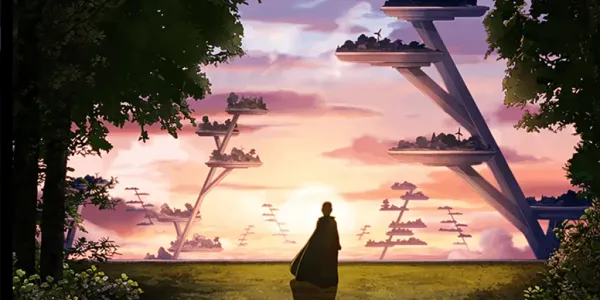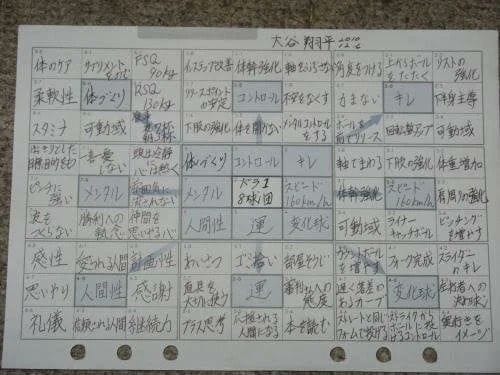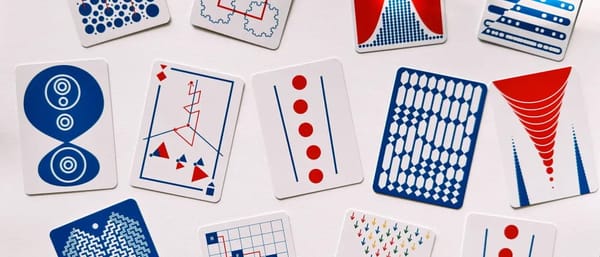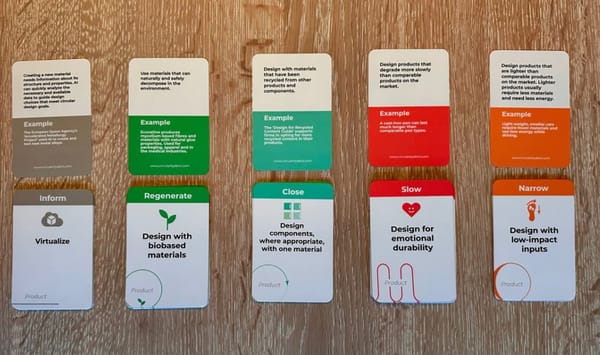№ 43 | Hexaflexagons, Mr. Rogers, ChatGPT Teaching Board Games, Dimensional Design Cards, and Allbirds M0.0NSHOTS Playbook
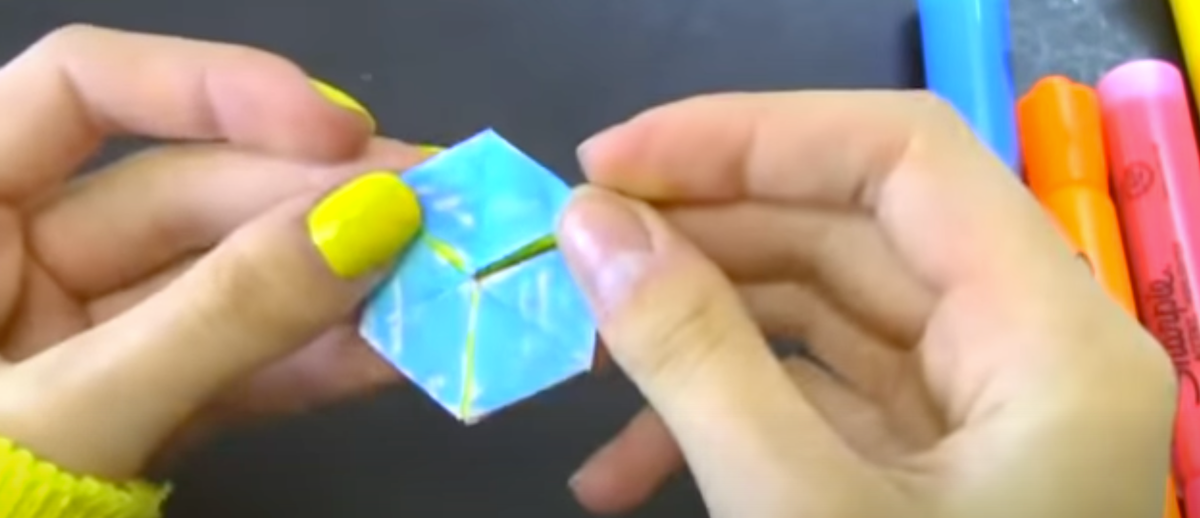
Hexaflexagons!
Mind. Blown. 🤯
Drop what you’re doing and watch these two videos about hexaflexagons:


The video format is wildly entertaining, as is the subject matter. And a bit of history to boot! There’s also a bit in part 2 where ‘Feynman’ insists on creating a diagram to make sense of this puzzle… perfection!
So why am I sharing hexaflexagons with a community centered around playful things to think with? Narrative possibilites. It’s definitely a playful thing. But, add content that is either narrative in nature or challenges someone to shift perspectives, and this is an interesting, creative medium/format to play with! At least, that's the story I'm telling myself.
The radical theology of Mr. Rogers

You know Mr. Rogers is one of my personal heroes, right? Anyway, here's a great overview the man, with a number of interesting details that were new to me.
I especially love this passage, on how to discuss difficult topics with children
Better they should know, in an age-appropriate way, and be given the tools to cope, than to be left out in the cold, as he put it, “at the mercy of their own imaginations.”
Again, naming true things and simply holding space to let children deal with them--rather than trying to hide or minimize or gaslight because it seems too hard.
I love the idea of both naming things and holding space. In a similar fashion, I’ve witnessed first hand the power of giving names to common team frustrations. For example, rather than ask a team why they don't feel autonomous, I can—at the outset of a workshop—list 6 or 7 known reasons teams aren’t more autonomous (many having very little to do with the team itself!). Seeing a felt frustration given a name legitimizes that for people, and holds space for people to say ‘yes, I’ve experienced that.’
”I taught ChatGPT to teach me board games, and now I won’t ever go back”
So yes, someone has “taught ChatGPT to teach me board games.”

I’m kind of bullish on the whole LLMs are just stochastic parrots—they’re not thinking machines. I’ve mentioned this before.
However…
I’m quite intrigued by the ChatGPT plus the ChatWithPDF plugin, that lets you “talk” to your PDF documents.
If this combo can actually serve up useful and accurate information, and more critically information localized to the content of a specific PDF file… possibillities!
Dimensional Design cards
A deck of cards that help you appreciate how your existing consumers would react based on triggering some system-level dimensions.
This set of cards (a free PnP version) goes along with Board of Innovation's Dimensional Design framework. (Think customer DNA? Or more modern take on segmentation?)

M0.0NSHOTS Playbook
Allbirds just announced an exciting new shoe: ”M0.0NSHOT: The World’s First Net Zero Carbon Shoe”
Cool. Cool.

Even cooler is the little bit at the bottom of the page, where they're “open-sourcing the toolkit that took it to zero [PDF], and inviting our friends in the industry to follow in our footsteps.” Knowledge sharing FTW.


